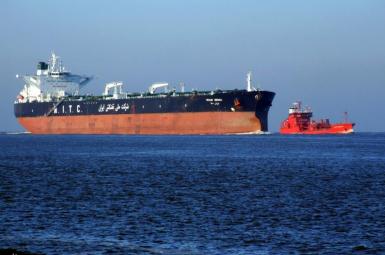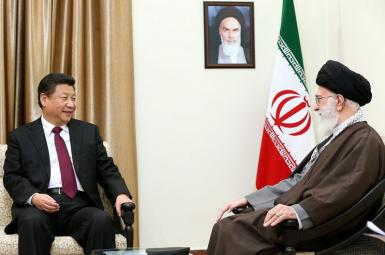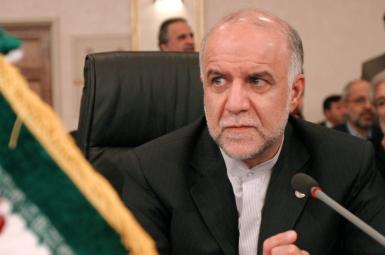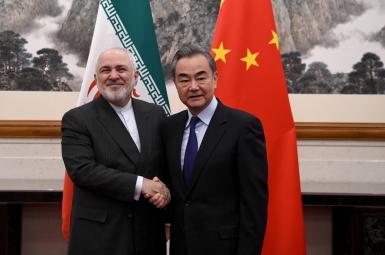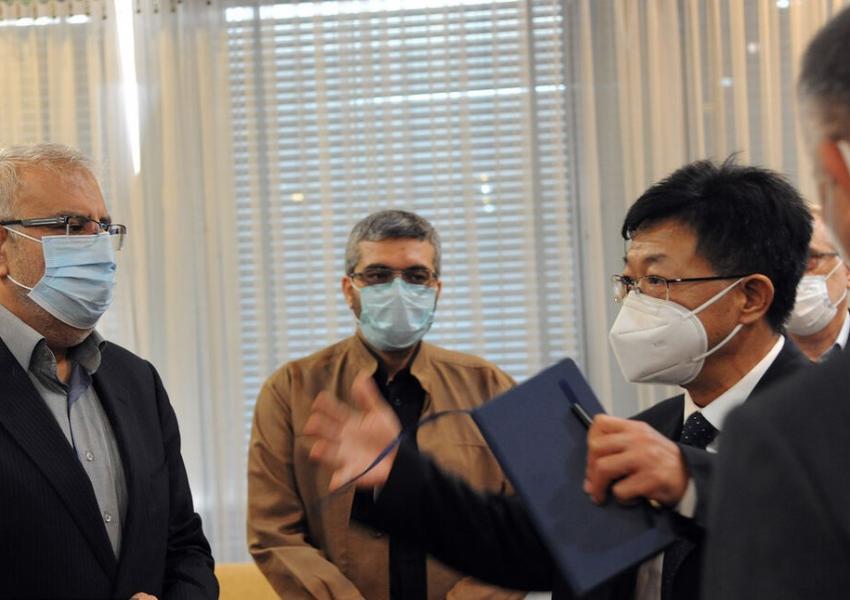
Iran Appeals To Chinese Companies For Billions In Oil Investments
Iran’s oil minister has said that his country intends to raise $145 billion in domestic and foreign investments to improve its oil industry in the next 4-8 years, underlining the importance of cooperation with Chinese companies.
Javad Owji in a meeting with the head of China Petroleum and Chemical Corporation (Sinopec) office in Tehran, Zhong Gouydoung on September 21 said that the Chinese company “is fully familiar” with Iran’s oil and gas fields. He praised China as “a friend and aligned” country and requested Chinese investments in “shared oil projects”.
Owji said that new government wants expanded cooperation with Chinese companies to develop its oil projects both in exploration and production (upstream) and in refining and petrochemicals (downstream).
Owji’s ambitious request comes as in the past two decades Sinopec and CNPC, another Chinese energy company, have a made a total of just $4.4 billion investments between 2007-2016. These companies were involved in phase one of Yadavaran and Azadegan oil fields.
But with the withdrawal of the United States from the 2015 Iran nuclear deal (JCPOA) and imposition of sanctions on Iran in 2018, both companies abandoned their projects. CNPC also cancelled its $5 billion agreement with Iran to expand phase 11 of the South Pars gas fields, together with the French energy giant Total.
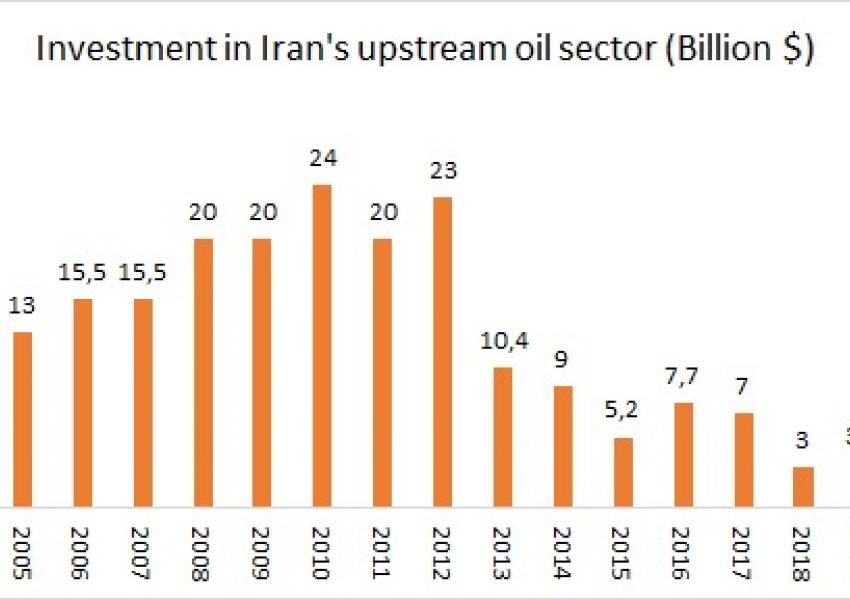
Since the establishment of the Islamic Republic in 1979 and deterioration of relations with the United States and other Western countries, Iran has not been able to invest, modernize and expand its oil and gas sectors the same way other regional countries such as Saudi Arabia have done.
Several factors have led to this situation. Economic and technology sanctions, lack of foreign confidence in Iran’s policies and lack of planning by successive governments have contributed to a degree of stagnation in Iran’s energy sector.
Iranian parliament’s research center and the oil ministry have reported that overall investments in the energy sector have substantially declined in the past decade.
Former oil minister Bijan Namdar Zanganeh and others have said that Iran needs up to $200 billion investments to improve the industry.
China and Iran concluded a 25-year cooperation pact in March that is said to contain up to $400 billion Chinese investments, including $280 billion in the energy sector.
After six months, however, China has not move forward with any investments, as US sanctions are still in place, with negotiations to restore the JCPOA not having led to an agreement yet.
China has bought Iranian oil in lieu of its investments in the past and it has recouped its $4.4 billion investment by importing Iranian oil, even when US sanctions were in place. But in the same period (2007-2016), China invested $187 billion in the United States, or 10 percent of total Chinese investments in the past 15 years.
Foreign investments in Iran’s upstream oil industry during Mohammad Khatami’s presidency (1997-2005) was $11 billion and it dropped to $3.8 billion during the populist president Mahmoud Ahmadinejad’s two term (2205-2013). In the eight years of president Hassan Rouhani’s presidency, foreign oil investment was just $600 million.
Parliament’s research center meanwhile reported that National Iranian Oil Company (NIOC) debts to the government and state-owned banks totaled $50 billion in 2018 and reached $60 billion in 2019. Fars news agency lately quoted officials as saying that the debt has reached $70 billion.
The level of NIOC’s debts shows that it does not have the resources to invest. Iran’s economy overall is also in crisis due to US sanctions and resources are scarce.

